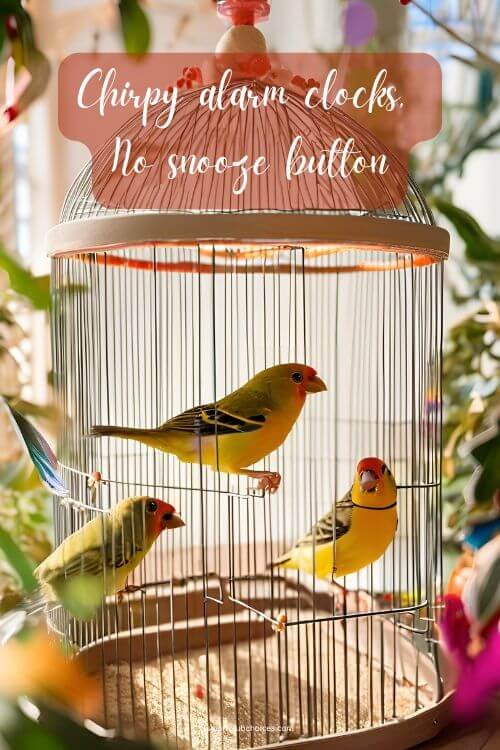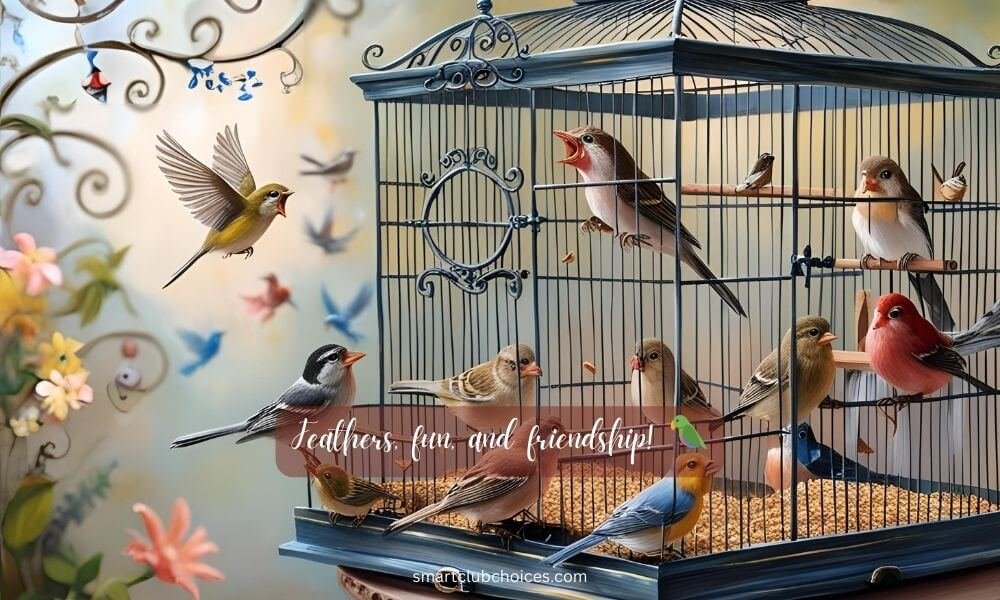Best Pet Birds for Beginners: A Guide to Choosing the Right One
So, you’re thinking about getting a pet bird. Congratulations! Birds are feathered bundles of joy, full of personality, charm, and the occasional squawk. But before you rush out to buy the first colorful bird that catches your eye, there’s something you should know: not all birds are created equal.
Choosing the right bird is like picking a roommate. You want someone who’s friendly, low-maintenance, and won’t drive you crazy with their habits. In this guide, we’ll walk you through the best pet birds for beginners, so you can find your perfect match. Let’s spread our wings and dive in!
Table of Contents
(1) The Budgie – The Feathered Social Butterfly
Why Budgies Are Great for Beginners
Budgies (also known as parakeets) are small, colorful, and full of personality. They’re like the golden retrievers of the bird world—friendly, easy to care for, and great with kids.
What Makes Them Unique
- Size: Budgies are small, making them perfect for apartments or smaller homes.
- Personality: They’re social, curious, and love to interact with their humans.
- Talking Ability: Budgies can learn to mimic words and sounds, making them a fun and entertaining pet.
What They Need
- Cage: A spacious cage with plenty of room to fly and play.
- Diet: A mix of seeds, pellets, and fresh fruits and veggies.
- Socialization: Budgies thrive on interaction, so spend time talking to and playing with your bird.
Pro Tip
Consider getting two budgies if you’re not home often—they’re social creatures and enjoy having a feathered friend.
(2) The Cockatiel – The Whistling Wonder
Why Cockatiels Are Great for Beginners
Cockatiels are like the cool, laid-back cousins of the parrot family. They’re easygoing, affectionate, and have a knack for whistling catchy tunes.
What Makes Them Unique
- Size: Slightly larger than budgies, but still manageable for beginners.
- Personality: Cockatiels are gentle, affectionate, and love to cuddle.
- Whistling Ability: They’re natural whistlers and can even learn to mimic tunes.
What They Need
- Cage: A larger cage with plenty of perches and toys.
- Diet: A balanced diet of seeds, pellets, and fresh produce.
- Attention: Cockatiels love spending time with their humans, so be prepared for lots of cuddles.
Pro Tip
Cockatiels can be a bit dusty, so regular baths or misting can help keep their feathers clean.
(3) The Finch – The Low-Maintenance Songbird
Why Finches Are Great for Beginners
Finches are like the introverts of the bird world. They’re small, quiet, and don’t require much hands-on interaction, making them perfect for busy or first-time bird owners.
What Makes Them Unique
- Size: Tiny and delicate, finches are perfect for small spaces.
- Personality: They’re social with each other but don’t need much human interaction.
- Singing Ability: Finches have a beautiful, melodic song that’s soothing to listen to.
What They Need
- Cage: A spacious cage with plenty of room to fly.
- Diet: A mix of seeds, pellets, and fresh greens.
- Companionship: Finches are happiest in pairs or small groups.
Pro Tip
Finches are best enjoyed as “look but don’t touch” pets—they’re not big on handling.
(4) The Lovebird – The Feathered Cuddle Bug
Why Lovebirds Are Great for Beginners
Lovebirds are like the tiny, colorful comedians of the bird world. They’re playful, affectionate, and full of energy.
What Makes Them Unique
- Size: Small but sturdy, lovebirds are easy to care for.
- Personality: They’re playful, curious, and love to explore.
- Bonding: Lovebirds form strong bonds with their humans and enjoy cuddling.
What They Need
- Cage: A medium-sized cage with plenty of toys and perches.
- Diet: A mix of seeds, pellets, and fresh fruits and veggies.
- Attention: Lovebirds need daily interaction and playtime to stay happy.
Pro Tip
Lovebirds can be a bit nippy, so gentle handling and patience are key.
(5) The Canary – The Singing Superstar
Why Canaries Are Great for Beginners
Canaries are like the opera singers of the bird world. They’re known for their beautiful songs and vibrant colors, making them a joy to have around.
What Makes Them Unique
- Size: Small and easy to care for.
- Personality: Canaries are independent and don’t require much hands-on interaction.
- Singing Ability: Male canaries are known for their melodious songs, which can fill your home with music.
What They Need
- Cage: A spacious cage with plenty of room to fly.
- Diet: A mix of seeds, pellets, and fresh greens.
- Environment: Canaries prefer a calm, quiet environment to thrive.
Pro Tip
If you’re looking for a singing canary, opt for a male—they’re the ones with the impressive vocal skills.

(6) Conclusion: Finding Your Feathered Friend
Choosing the right bird is all about understanding your lifestyle and what you’re looking for in a pet. Whether you want a social budgie, a cuddly cockatiel, a low-maintenance finch, a playful lovebird, or a singing canary, there’s a bird out there for everyone.
Remember, birds are a long-term commitment, so take your time to research and prepare before bringing one home. With the right care and attention, your feathered friend will bring joy, laughter, and a little bit of chaos into your life.
So, what are you waiting for? Spread your wings and find your perfect match. After all, life is better with a little birdie love!








